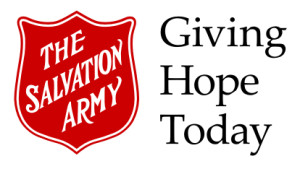
Janus- Eyes in the back of his head like a good teacher.
Since I’m a history buff, let’s start with a little background as to how this tradition of making New Year’s resolutions began. According to History.com, Babylonians four millenniums ago made vows to the gods to repay old debts and return anything they had borrowed, like that chariot wheel and wine jug the next-door neighbor loaned them, on their New Year’s day in mid-March.? If they didn’t follow through, they’d make the gods angry, not a wise thing to do.? At least we don’t have that worry if we don’t keep our resolutions.? Jump to the Romans. Julius Caesar revised the calendar (which is known to historians, appropriately enough, as the Julian calendar), moving the beginning of the New Year to a month named after the god Janus, our January.? Since Janus had two faces and could look forward and backward at the same time, it was a time for looking back on the old year and ahead to the new year. Romans would promise the gods to be good in the coming year. Again, that put a bit more onus on keeping the promise since it was a god you promised and not yourself.? Jupiter might just strike you with lightening if you failed to keep your word. Resolutions continued in the Christian era, often as re-commitments for those of the faith.? About 45% of Americans now make them.

Mark Twain- Great humorist and observer of human foibles.
This year, I resolve to make no New Year’s resolutions. Of course, I am not seriously making that resolution since it would be automatically broken the moment I made it. In doing so, I would be joining the ranks of the majority of people who make them. According to Forbes, one quarter of the resolvers keep them for 30 days and a whopping 8% make it for the long term. Psychology Today puts the figure for the one-monthers at only 20%. As Mark Twain wryly observed, “New Year’s is a harmless annual institution, of no particular use to anybody save as a scapegoat for promiscuous drunks, and friendly calls, and humbug resolutions.” But why do people continue to make resolutions if they are only going to fail? As I see it, there are two reasons: desire to improve and unrealistic optimism.
There is nothing wrong with wanting to improve. There are few so egotistical that they do not feel they could improve in some way. While lists of the most common resolutions vary from source to source, certain chart-toppers appear on all of them.? However, the most common resolutions have to do with helping one’s self rather than with helping others. I’m not saying that it’s bad to improve one’s self, but it does say something that “Helping others more” or “Getting involved in community service” doesn’t appear on any chart I’ve seen. But perhaps that’s a topic for another time. Let’s talk about ones on the lists.

Average American?
Numero uno on every chart is one of three or a variation of them: exercise more, lose weight, eat more healthily. Many lists show these three in the top three spots. Since the recommended and sure way to lose weight is to eat less, better food and exercise more, they are all connected. Here’s where optimism can be a bad thing. The guy who weighs 300 lbs., is a couch potato and lives on Big Macs with a large order of fries makes this resolution after a night of bingeing on Swedish meatballs, egg rolls, chips and dip and beer to ring in the New Year. So first thing he does is join a gym, buying a year’s membership, and stock the fridge with salad fixings while tossing the leftover kielbasa with mashed potatoes and mac and cheese down the garbage disposal. On his first workout (wearing all the new workout gear bought to look cool), he lifts as much weight as he can for as many reps as he can, since he doesn’t want to waste time getting into shape. Two days later, he’s so sore he can hardly walk or raise his arms. Since it hurts to even lift a fork to eat his lettuce, celery, and carrots salad, it makes the withdrawal from a fatty, high-carb diet even more painful. But he is determined to see it through, but feels once a week is enough to the torture racks at 24 Hour Fitness and a burger every few days will help him get through it all. On January 31, he steps on the scale. He’s lost three pounds. With disgust he decides enough is enough. Better to enjoy life than suffer for almost no results. He heads for Costco to stock up on frozen lasagna and M & M’s. Now you know why so many treadmills and exercise bikes go up for sale in February. But not the one owned by the woman in the infamous Peloton commercial. (Click here to view it and the CBS report on it)
So what went wrong with our case study’s noble plan? According to Psychology Today, the four main reasons resolutions are failures (click here for article) are unclear goals, feeling overwhelmed, feeling discouraged and not being really ready to change. I would add being overly optimistic. In our example, just getting in shape is also not easily measurable.? It is an unclear goal, which leads to feeling discouraged.? Expecting immediate results is being overly optimistic, which leads to feeling overwhelmed and being discouraged. But even setting realistic goals are not going to make it happen if one is not really ready to change. Are you willing to give up hamburgers for the rest of your life in order to reach your goal? Cheat days work for some, but they have to be regulated or they become the norm rather than the exception. And for some, they just become a gateway to returning to the old life style.
Other self-improvement resolutions that are common are giving up smoking and drinking less, if those are one’sproblems.? These are where the desire to change must be strong. It is just too easy to slip gradually back into bad habits, then say, “Well, I tried.” To optimistically think it will be easy leads down the road to failure.

Family time is not a waste.
The last very common goal is to spend more time with family. To me, this is one where failing is very sad. Failing on that resolution and waiting another year to try again means a year of irreplaceable experiences lost. Harry Chapin’s song, Cats in the Cradle, says it so well. “We’ll get together soon.” It’s not that the dad walks out on his son or abuses him, he’s just busy with life. Maybe he wants to provide his son with the best material things he can. Just not his time. Once we miss those moments, all we can do is look back with regret at what might have been. Whether it’s a child, a parent, a sibling or a friend, lost time is just that. There’s no replays, no “mulligans,” no “lets” in life. It’s a one-time only event. Although I have tried to live my life without regrets in that area, there are still too many. This is a prime example of a need for clear goals. To say, “I’ll visit my parents more often” or “I’ll call my brother more often” is simply too vague. Set a time, a specific time to do these things. Otherwise they don’t get done. I can’t count the times I’ve said, “We need to get together” to someone and not followed through because there was no firm date. Not good.

My heroes!
Are any of the most common resolutions ones I need to make? Yes and no. There are areas of my life that need work, but I am not going to make a resolution to do them this New Year. I am going to work on them, keeping in mind the reasons for failure. But I am also going to look outside my own self, look to helping others. Some of what I will do in that area is monetary. Donating to organizations like the Salvation Army is a very positive way of doing that. Before moving to Nevada, I helped enlist bell ringers in other organizations I was in and rang the bell for them. It may not be that much, but it is something. I am also going to see how I can help in other ways. I’m not sure of specifics at this point, but I am going to work on them. Tomorrow. If I have the time. Actually, I am working on them now.

New Year’s Day at Times Square
In conclusion, improving one’s self is not bad.? The top ten resolutions are worth doing, but there should be more. Think outside yourself and outside the box. And if you do make a resolution, go in with your eyes open. Consider the reasons most fail and avoid them. Remember that January 1 is just another day on the calendar, not even New Year’s in much of the world. Don’t expect it to be magical. And if you do fail, chose another day soon to start again instead of waiting for the ball to descend in Time’s Square again.
As for me, one other task I am going to do is resuming my regular blog entries. I would like to do them weekly, but monthly is more realistic. That is a clear goal and not overly optimistic. But it is not my New Year’s resolution. For that, I resolve to make no resolutions. Oops!? I already blew it. Guess I’m like 92% of those who make them.
